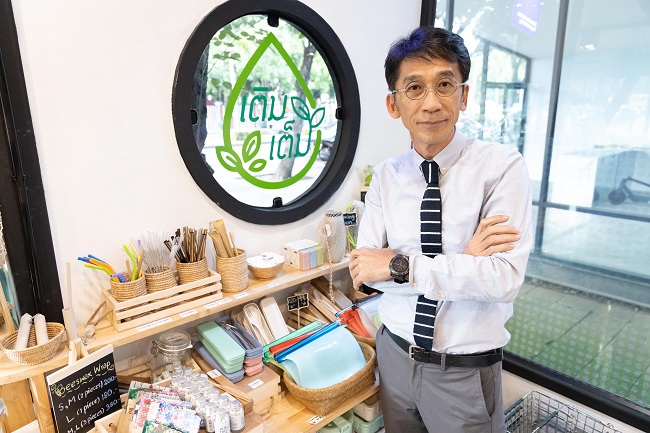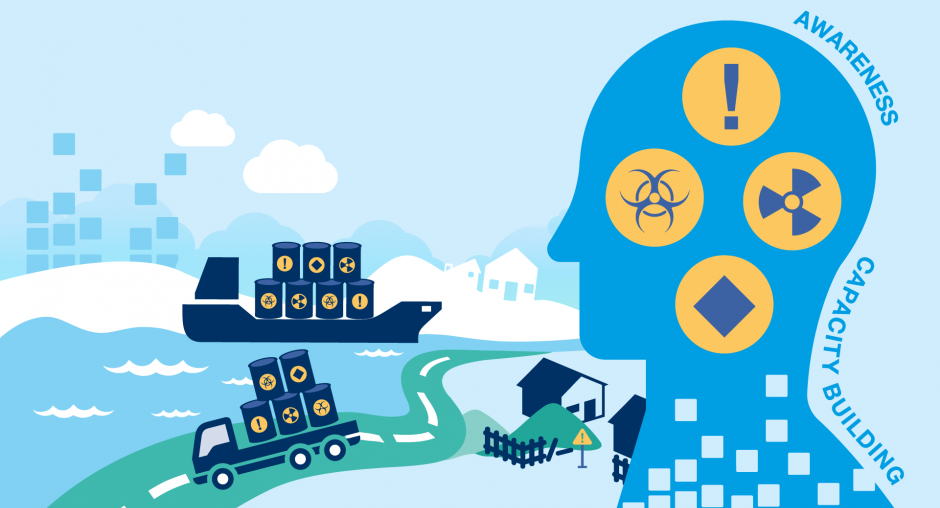Thammasat University ensures that the minimization policies are extended to outsourced suppliers and the supply chain, especially suppliers of equipment, stationary, and building contracts. The supporting evidence attached herewith is the contract for hygienic service and facility maintenance between Thammasat University and a private sector for buildings of medical science faculties.
Author Archives: Chol
Extending disposable policy to outsourced services: MOU with CPALL
0n July 5, 2018, Thammasat signed MOU with 30 thai universities, in the name of Sustainable University Network (SUN), and CPAll, the largest supply-chain convenient stores (7-Eleven), for the initiative on reduction of single use plastics on campus.
Thammasat Zero Waste Policies
Since 2011 until present day, Thammasat University implemented a set of announcements, policies and activities to minimize disposable items as a part of Thammasat Zero Waste Policies. Here are some of the concrete examples:
No Single-Use Plastic Policy
Thammasat has campus wide policy to reduce single use plastics and collaborated with several partners to implement the policies. Guidelines, facilities, and policies have been implemented actively since 2019.
Thammasat Recycling Policy
Thammasat has measurement of waste through the management of ‘garbage recycling bank policy’, which uses application from SCG (private sector) to calculate amount and price of recycled items sold, and through the ‘campus garbage facility, which is outsourced and required monthly reports sent to university.
Thammasat Waste Management Policies
Thammasat has policy on waste management, especially for hygienic aspects/ chemical waste from labs/electronic waste in 2019 and 2020. The policy runs incorporating with outside parties, including private sectors and other universities. Thammasat is one of five active university nodes, covering the Central Region of Thailand for training chemistry lab safety under the National Project: Enhancement of Safety Practice of Research Laboratory in Thailand.
Thammasat Ethical Food Source Policies
Thammasat has policies to ensure vegetables and meat products in all canteen must be GAP grade. University provide on-campus vegetable farm where non-chemical growing process is mandatory. Planting materials and fertilizers are also produced on campus to ensure non-chemical conditions.
Thammasat Professor in the National Committee on Sustainable Development
Since February 2020, Assistant Professor Nattapong Puttanapong , Ph.D from Faculty of Economics was appointed to be an economic expert in The National Committee on Sustainable Development which is the official national body driving SDGs in Thailand.
The SDG-Foresight project for the Thailand SRI Strategic Plan
From March to June 2020, SDG Move undertook policy-focused research for Thailand Science Research and Innovation (TSRI), an organization under the Ministry of Higher Education, Science, Research and Innovation. It was the analysis of data and the design of future scenarios to support the science research and innovation plan. TSRI wants this development plan to be the catalyst of change that would steer Thailand to progress more sustainably and inclusively along the line of the United Nations’ Sustainable Development Goals (SDGs).
Participatory body for stakeholder engagement for the “Best Community Welfare Fund/organization Awards”
In 2019 to January 2020, Puey Ungpakorn School of Development Study (PSDS) initiated the Award giving project: the “Best Community Welfare Fund/organization Awards”. The process for the organization of this project was operate by a participatory body for stakeholder engagement, involving partners at several levels.









